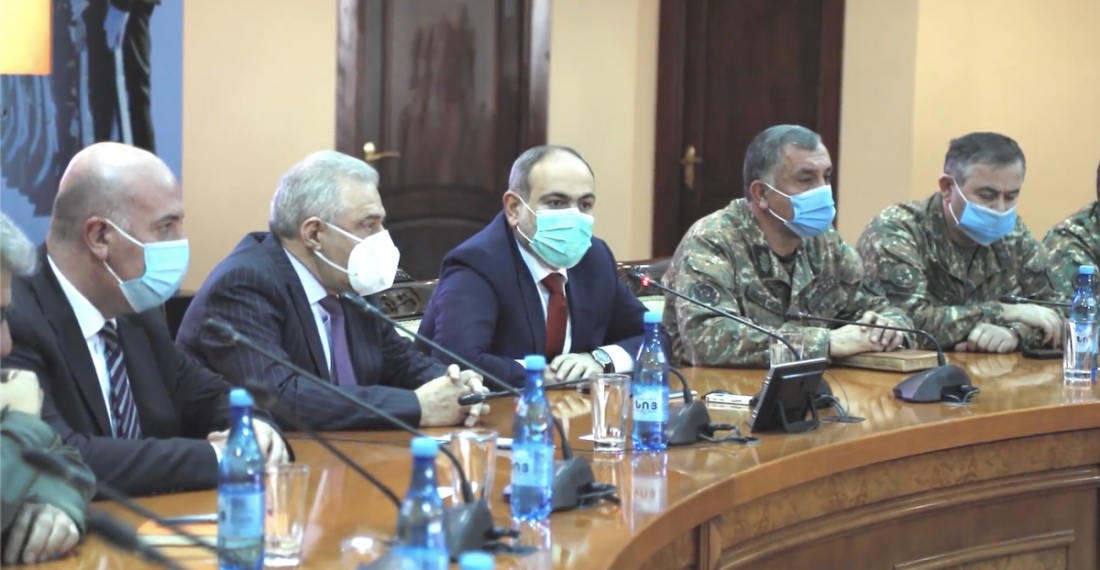Armenian President Armen Sarkissian has issued an open invitation to prime minister Nikol Pashinyan and the leaders of the opposition to a meet amid a continuing political crisis and an impasse on the command of the armed forces.
Sarkissian called for the prime minister, for the leaders of the factions in the parliament, and for representatives of the opposition umbrella group currently organising street protests, to meet at the presidential residence on Saturday (13 March) at 12:00 to “find mutually acceptable solutions to overcome the crisis”. He referred to finding a resolution as an “urgent and imperative demand” and requested their response by 18:00 tomorrow (11 March):
“I reaffirm my conviction that the only way to resolve the differences is through negotiations and dialogue, and the only way for the development of Armenia and Artsakh is to unite the efforts and opportunities of all of us.”
This morning the government announced that the armed forces Chief of staff, Colonel General Onik Gasparyan, has now been relieved of his post. The prime minister’s spokesperson, Mane Gevorgyan, told ARMENPRESS earlier today that the prime minister had submitted a motion to President Armen Sarkissian to appoint Artak Davtyan as the new Chief of Staff of the Armenian Armed forces.
read more: Armenian Armed forces chief of staff formally dismissed
In a statement this afternoon, Gasparyan noted that his “position is unchanged”, referring to the prime minister’s statement and the process of his dismissal as “unconstitutional”. He announced that he is filing a lawsuit with the Armenian administrative court. He argued that the only way out of the crisis is through the prime minister’s resignation and parliamentary elections, and called on the armed forces to stand with him in opposition to Pashinyan.
The country’s first president, Levon Ter-Petrosyan has weighed in on the dispute for the second time this week, supporting Gasparyan’s calls for Pashinyan’s resignation. In a statement, he blamed Pashinyan for the current crisis, condemning the prime minister for the country’s “humiliating” defeat in last year’s war with Azerbaijan. However, he emphasised that “the issue of change of government must be resolved exclusively in a constitutional way”, noting that this requires compromise between the government and opposition.
This afternoon, Pashinyan visited the Army High Command and held a meeting with the leadership of the Armenian military (pictured), in a speech highlighting the importance of the armed forces for the country. He referenced that the country was going through an ordeal but that no one could underestimate the importance of the country’s armed forces, from generals to privates, who have and continue to serve their country.







